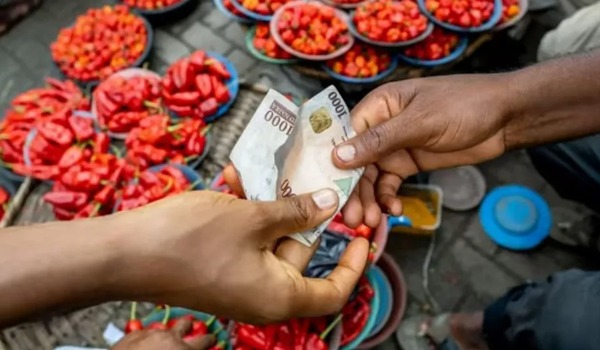Promises vs. Reality: Nigeria’s Struggle Against Food Inflation, A Pledge Unfulfilled
by Admin ·
 Six months after the Nigerian government promised to address the rising cost of food, citizens are yet to witness the impact of these interventions. In July 2024, the government introduced a series of strategic measures to combat the surging food prices, which had become a pressing issue for Nigerians.
Six months after the Nigerian government promised to address the rising cost of food, citizens are yet to witness the impact of these interventions. In July 2024, the government introduced a series of strategic measures to combat the surging food prices, which had become a pressing issue for Nigerians.
The Minister of Agriculture and Food Security, Abubakar Kyari, made the announcement via his verified social media account, outlining measures designed to bring relief. These plans included a 150-day duty-free import window for key food items such as maize, husked brown rice, wheat, and cowpea, alongside suspending duties, tariffs, and taxes on their imports through land and sea borders. The government expressed hope that these measures, set to be carried out over a 180-day period, would help curb the steep price hikes that had driven food inflation to alarming rates.
The countdown of the 180 days from July 10, 2024, concluded on January 7, 2024, yet the situation remains unchanged, with inflation continuing to climb. In June 2024, Nigeria’s food inflation rate hit 40.87%, up from 40.66% in May. According to the National Bureau of Statistics (NBS), the hike was driven by rising costs in basic foodstuffs like millet, yam, groundnut oil, and fish, contributing to a sharp year-on-year increase.
The Consumer Price Index (CPI) report by the NBS indicated a slight decrease in food inflation to 37.52% in August, though this relief was short-lived. By September 2024, the inflation rate rose again to 37.77%, marking a 7.13% increase compared to the same period the previous year. This upward trend persisted into October, reaching 39.16%, with the food inflation rate for November standing at 39.93%.
Amidst this turmoil, President Bola Tinubu expressed his commitment to tackling food prices and reducing inflation to 15% by the end of 2025. In his New Year message, the president pledged to boost domestic food production and promote local manufacturing of essential goods. However, experts remain skeptical about the effectiveness of these promises, citing continued high inflation and the rising cost of living as major concerns for the average Nigerian.
The Centre for the Promotion of Private Enterprise (CPPE) pointed out that high inflation has exacerbated poverty, driving up the cost of living and eroding business profits. While the CPPE anticipates some moderation in inflation due to improved exchange rates and reduced energy costs in 2025, the organization warns that key inflation drivers, such as energy prices and transportation costs, are unlikely to dissipate entirely.
economic experts expressed concern over the failure of the government’s tariff-free food import policy. Gbolade Idakolo, CEO of SD & D Capital Management, attributed the failure to bureaucratic inefficiencies that hindered its successful implementation. He criticized the government’s short-term approach, suggesting that a longer-term commitment of at least two years would have been more effective.
Dr. Samson Simon, an economist at ARKK Economics and Data Limited, painted a bleak picture of Nigeria’s food security crisis. He highlighted the nation’s poor performance on the food security index, ranking near the bottom in both food availability and affordability. He linked the growing food inflation to tragic incidents, such as stampedes in Ibadan, Anambra, and Abuja, which were sparked by rising food prices.
Simon also criticized the government’s lack of investment in modernizing agriculture, stressing the need for mechanization, increased research, and improved financing. He argued that food insecurity cannot be solved by simply encouraging people to become farmers but requires a comprehensive and sustainable approach.
Adding to the complexity, Simon pointed out the role of insecurity in exacerbating the food crisis. With many farmers afraid to return to their lands due to the threat of violence, agricultural production has been severely disrupted. To address this, he proposed that a quarter of the national budget be allocated to agriculture, with an emphasis on ensuring security for farmers and implementing intentional strategies to improve food production.
Despite the government’s repeated pledges, the food crisis in Nigeria remains unresolved, and the growing disconnect between policy promises and on-the-ground realities continues to fuel public frustration.













